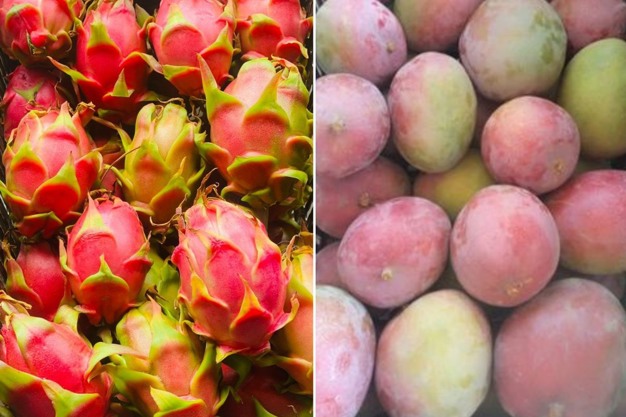Moroccan fruit production is going through a difficult year due to adverse climatic conditions. This would increase import volumes to cover local demand, but the picture is more complicated, says Moroccan fruit importer El Yazid Bennouna.
To begin with, fruit imports are primarily intended to cover the off-season in Morocco, and the last two years have been no exception, explains Bennouna: "When the Moroccan produce is available, imports can't compete in terms of price or quality. That's why our import calendars are counter-seasonal. Due to climatic conditions, we are seeing more and more delays in launching the seasons of many fruits in Morocco."

Bennouna lists the key products imported on a regular basis: "Demand is strong for kiwis, which we currently import from Italy and Greece, mushrooms, endives and pears from Spain, pineapples from Costa Rica, exotic and tropical fruits from Indonesia and Thailand, ginger from China, and apples from Italy. We also import avocados from Chile or Peru, but with the start of the Moroccan season, local produce is taking over the market."
For other products, particularly those produced in abundance in Morocco, production deficits are not automatically replaced by imports. For example, the production deficit in the citrus fruit sector, which was around 50% last season, led to only 40 tonnes in imports from Egypt, compared with 0 tonnes the previous season. Bennouna comments, "Importing fruit is subject to rules, import permits and specifications. Citrus is one of the fruits we don't import, and replacing the production deficit is therefore done in minimal quantities."
The importer continues, "to satisfy local market demand, Moroccan exports declined. At the same time local demand has also declined. The price parameter remains decisive and prevents a substantial increase in imports. We are even seeing a decline in imports of products we usually imported in large volumes."
The decrease in fruit imports, despite a fall in local production, is directly linked to the drop in purchasing power in Morocco, adds Bennouna: "This is remarkable in a context of global inflation and especially after the earthquake that hit Morocco in September. A significant part of the households' budget went into aid for the affected population, which changed their behavior and reduced the consumption of fruit, especially imported fruit."
According to the latest HCP (statistics authority) report published in September, fruit is the foodstuff most affected by inflation, at 2.8% year-on-year. The food index rose by 10.4%. In the service industry, the sector most affected by inflation is catering, with 5.9%. "The catering industry is one of the 3 destinations for fruit imported into Morocco, alongside supermarkets and second-hand traders," says Bennouna.
For more information:
El Yazid Bennouna
EB Fleg
Tel: +212661142371
